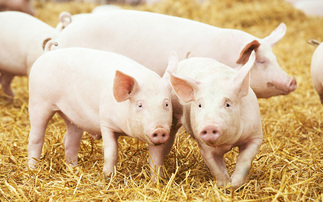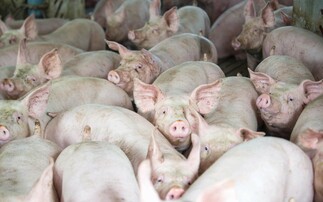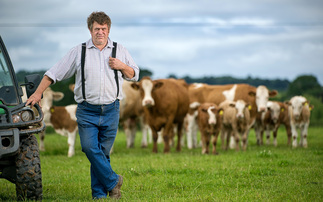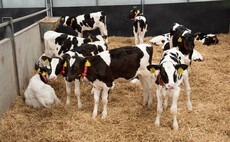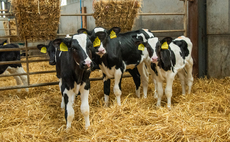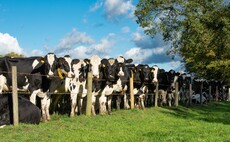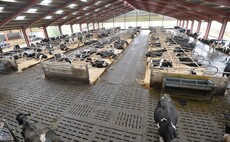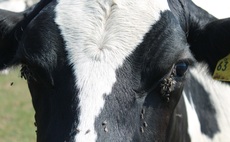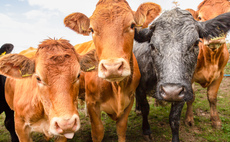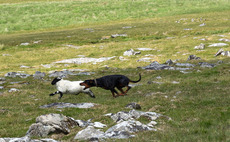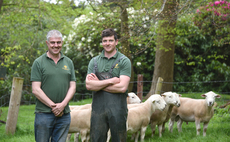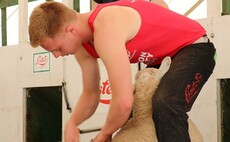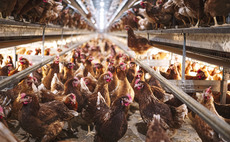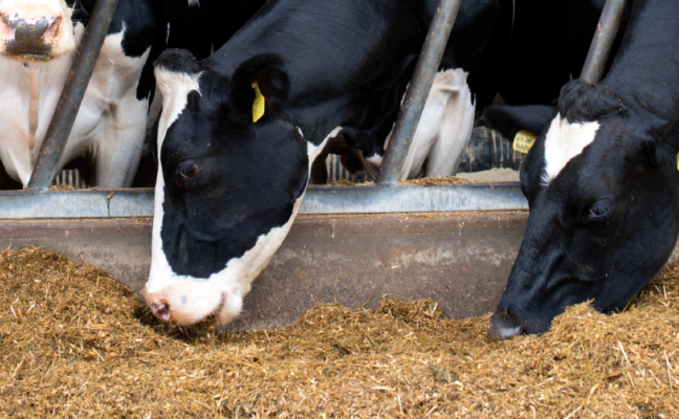
What you need to know in order to spot the signs of bluetongue and act to alleviate risk of the disease spreading (generic)
Following five confirmed cases of bluetongue virus at three farms in Kent since November 11, farmers have been urged to remain vigilant and aware of the risks by Chief Veterinary Officer Christine Middlemiss.
Four additional cases of bluetongue found at farms in Kent
Defra and APHA have provided advice and guidance for farmers on how to identify the disease and stop the risk of spreading.
Here is what you need to know about bluetongue:
Bluetongue risk
A number of different types (serotypes) of bluetongue are currently circulating in Europe including:
-
BTV-3
-
BTV-4
-
BTV-8
Bluetongue could spread to the UK if infected midges are carried across the channel by the wind. The south and east coasts of England are at highest risk. The exact level of risk depends on the:
-
level of disease in nearby areas of Europe
-
weather conditions, particularly wind speed and direction
-
temperature
Bluetongue could also spread into the UK if infected animals, blood or germinal products, are imported from countries where bluetongue is circulating.
Farmers urged to be vigilant for new strain of bluetongue virus
Bluetongue has been reported in a number of European countries.
You should discuss the risks of importing stock from BTV affected countries with your vet.
Vaccination is available for some types of bluetongue. You should discuss vaccinating your herd or flock with your vet.
Movement licences
Animal movements out of the temporary control zone (TCZ) are not allowed until we have a better assessment of the disease situation. Movements into or within the zone are only allowed under licence.
However, you can apply for a specific movement licence if there is an urgent and genuine welfare need to move animals, or you need to move animals from:
-
a premises within the TCZ to another premises within the TCZ
-
the free area into the TCZ permanently (for example, breeding stock)
-
the free area or within the TCZ to go direct to slaughter within the TCZ
-
the TCZ to go direct to slaughter at a designated abattoir in the free area within 100 miles of the premises of origin
Advice for farmers about the temporary Bluetongue control zone
How to spot bluetongue
If you keep livestock, you must continue to keep a close watch for, and report, any suspicion of bluetongue disease in your animals.
In sheep
Sheep are more likely to show obvious clinical signs of Bluetongue than cattle if they become infected. Signs of bluetongue in sheep include:
-
ulcers or sores in the mouth and nose
-
discharge from the eyes or nose and drooling from mouth
-
swelling of the lips, tongue, head and neck and the coronary band (where the skin of the leg meets the horn of the foot)
Other clinical signs include:
-
red skin as a result of blood collecting beneath the surface
-
fever
-
lameness
-
breathing problems
-
abortion
-
death
In cattle
Signs of the disease include:
-
lethargy
-
crusty erosions around the nostrils and muzzle
-
redness of the mouth, eyes, nose
-
reddening of the skin above the hoof
-
nasal discharge
-
reddening and erosions on the teats
-
fever
-
milk drop
-
not eating
-
abortion
Adult cattle may serve as a source of virus for several weeks while displaying little or no clinical signs of disease and are often the preferred host for insect vectors.
Letters: 'The bTB battle is one which is beyond our farm gate'
In calves
Calves can become infected with bluetongue (BTV-8) before birth if the mother is infected while pregnant. Signs of infection include:
-
calves born small, weak, deformed or blind
-
death of calves within a few days of birth
-
abortions
Livestock keepers and vets should consider bluetongue as a possible cause for calves showing these signs.
How bluetongue is spread
Bluetongue virus is mostly spread by certain species of biting midges (Culicoides species), many of which can be found throughout Great Britain.
Midges are infected with the virus when they bite an infected animal and the virus spreads when the infected midge then bites an uninfected susceptible animal. Once a midge has picked up the bluetongue virus it will be a carrier for the rest of its life.
The time of year (midges are mainly active between April to November), meteorological conditions (temperature, wind speed and direction and rain), topography and the proximity and density of neighbouring farms with susceptible animals are significant factors in a potential incursion and on how quickly, and how far midges can spread the disease.
Bluetongue virus can also be spread through biological products such as blood, germinal products (semen or embryos), or the movement of infected animals.
Infected pregnant animals can, under certain circumstances, transmit the virus to their unborn offspring. Once born, the infected offspring could act as a source of bluetongue virus.
The severity of the infection depends upon the serotype of the virus and may also be affected by strain. New serotypes continue to be identified but only serotypes 1-24 are notifiable.
Practice good hygiene when vaccinating animals
Bluetongue can also be transmitted through dirty needles.
Animal keepers and vets should follow good practice when treating and vaccinating animals at risk of being infected with bluetongue.
Preventing and controlling bluetongue
You can help to prevent the disease by:
-
vaccinating your animals with a suitable authorised vaccine
-
responsibly source livestock
-
practising good biosecurity on your premises
-
remaining vigilant
If you import animals, speak to your vet before you decide to import them.
If bluetongue is found to be circulating, APHA will place movement restrictions in zones around the affected premises.
Is cow calf contact part of dairy's ethical future?
Vaccinating your animals
Vaccination is the best way to protect animals from the bluetongue virus serotypes 1,2,4 and 8. You should discuss with your vet whether vaccination would benefit your business. There is no vaccine available for serotype 3.
You need to comply with the requirements of the general licence if you wish to vaccinate animals located outside of a restricted zone for bluetongue.
It can take up to 6 weeks for your animals to be fully immune, as your animals will require a period of time for immunity to develop following vaccination and may require 2 doses of the vaccine, 3 weeks apart.
Vets can apply to the Veterinary Medicines Directorate for a Special Import Certificate (SIC).
The certificate allows keepers to import safe and effective bluetongue vaccine directly to vaccinate their stock.
Importing animals from bluetongue affected countries
You should get advice from your vet about the risks and the health status of animals you want to import, before you import them.
If you import animals you should:
-
make sure animals comply with all of the requirements of the model health certificate to confirm they've come from a bluetongue free country or, where a vaccine exists, the animal has been correctly vaccinated against the right strains of bluetongue - this will depend on which country you're importing from
-
fill in bluetongue declaration GBHC172 if transiting through a bluetongue restricted territory
-
check if current issues relating to imports, exports and EU trade of animals and animal products affect your import
-
consider what additional guarantees the seller can provide - such as a pre-export test to prove the animal is not infected and has immunity to BTV
-
consider pre-vaccinating your flock or herd against the relevant strains of bluetongue before introducing new animals
Movement restrictions will apply to cattle or sheep imported from countries where bluetongue is known to be circulating. These restrictions will apply until the animals have been tested and confirmed free of the disease.
Animals that test positive for bluetongue may be culled or returned to the country of origin. Any animals which travelled in the same vehicle and are at risk of becoming infected may also be culled. No compensation will be paid for the culled animals.
All other animals on the premises that are at risk of becoming infected will be placed under movement restrictions. These restrictions will apply until it's confirmed that the disease has not spread. These restrictions may last several weeks.












